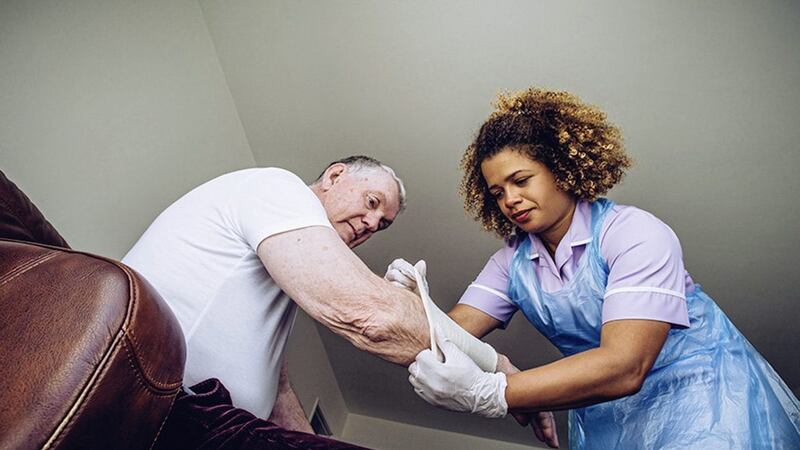LEADING charities have called for the urgent introduction of a cancer strategy in Northern Ireland as waiting time targets for vital treatment are breached - with a third of patients facing delays in excess of two months.
Roisin Foster, chief executive of Cancer Focus, said she was aware of one patient who had volunteered "not to have his chemotherapy treatment" at a clinic recently due to the large volume of people waiting to be seen and because staff were so overstretched.
Ms Foster was among a number of campaigners who attended an event at Parliament buildings yesterday calling for an up-to-date cancer strategy to be developed as the current 10-year-old plan is "out of date".
The charity chief said the north was the only region of the entire NHS without a dedicated strategy despite incidences of the disease predicted to rise by 60 per cent by 2035.
Figures released last week also showed that a third of patients in Northern Ireland with an urgent referral for suspected cancer did not start their treatment within the recommended 62 days. The target is 95 per cent.
"These figures make grim reading. To wait two months for treatment is a long two months but to have that delayed is terrible for the patient," Ms Foster said.
"We really need an up-to-date strategy like the rest of the NHS to set clear goals for treatment and research - we need our politicians back in Stormont to do this. In the meantime, it is the vulnerable who suffer most.
"Treatments do not stand still and patients do not stand still, we need to invest in this. The service is being stretched and is at breaking point. I know of one patient who was due to have his chemotherapy but said he would come back another day because there were so many other patients. We also can't forget the staff in all of this who want to do the best job possible."
The latest Department of Health statistics also reveal a marked decline over the past year in the number of women seen within 14 days following an urgent referral for breast cancer.
It has fallen from almost 96 per cent of patients in 2016 to 75 per cent in 2017.
The development comes two months after the Irish News revealed that terminally ill patients in Northern Ireland were being placed on waiting lists for hospice beds as cuts to care packages were preventing inpatients from being discharged home.
A spike in the number of cancer patients in their thirties and forties being admitted for end-of-life care had also created further demands on hospice services as they cannot be referred to nursing homes - which are often used an alternative when a care home package isn't in place.







